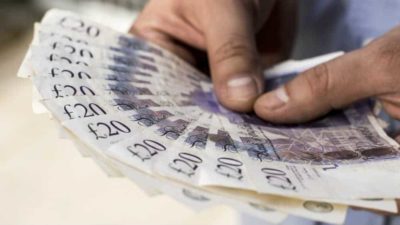Games Workshop (LSE: GAW) has been one of the best performing stocks on the London Stock Exchange in recent years. It doesn’t appear to be slowing down yet, with it making new all-time highs in the last few weeks after the release of its stellar half-year report.
Profit before tax increased to £58.6m from £40.8m, and the dividend increased to 100p from 65p.
With the stock currently trading above 7,300p, in 2016 it was available to buy for all of the calendar year under 600p.
If we’d bought £5,000 of Games Workshop stock then, at today’s price we’d have over £60,000.
That’s an incredible return of above 1,000%.
Games Workshop has a moat
One of the inescapable facts about Games Workshop is that it has a certifiable economic moat. The business runs the popular brand Warhammer and offers the chance to play the game in its stores. This not only attracts new customers, but builds brand loyalty through relationships with the customer.
Games Workshop doesn’t just sell products. It sells experiences. It sells passion for a game, which its customers love. With many high street businesses going to the wall, Games Workshop has gone from strength to strength because its moat allowed the business to grow without any competition.
It listened to its customers
It wasn’t always the big success that it is now. In the era of Pokémon, and the Lord of the Rings trilogy, Warhammer was under threat and there were constant accusations that the company was focusing more on extracting cash out of the customer rather than focusing on the actual game and brand.
When new CEO Kevin Rountree joined in 2013, the stock’s fortunes eventually started to shift. With a focus on the actual game, the fanbase started to come around and return.
Low-risk model
By selling physical models and board games, Games Workshop is able to control everything from its supply chain to creation and manufacturing. By listening to its customers, there’s a strong chance that new ranges will do well. However, if not, it’s able to adapt quickly as it’s in control.
Further revenue comes from books and games elsewhere. Games Workshop could turn Warhammer into a video game, but video games are high risk. There’s no guarantee of success and costs can steadily creep up. The company is happy to license this out, as that means it takes on no risk but can share in the spoils of success should there a positive outcome. It also adds further advertising for the Warhammer brand.
With a current PE ratio of around 30, it’s easy to say that this stock is overvalued. But people have been saying that for a long time. And they’ve been wrong.







